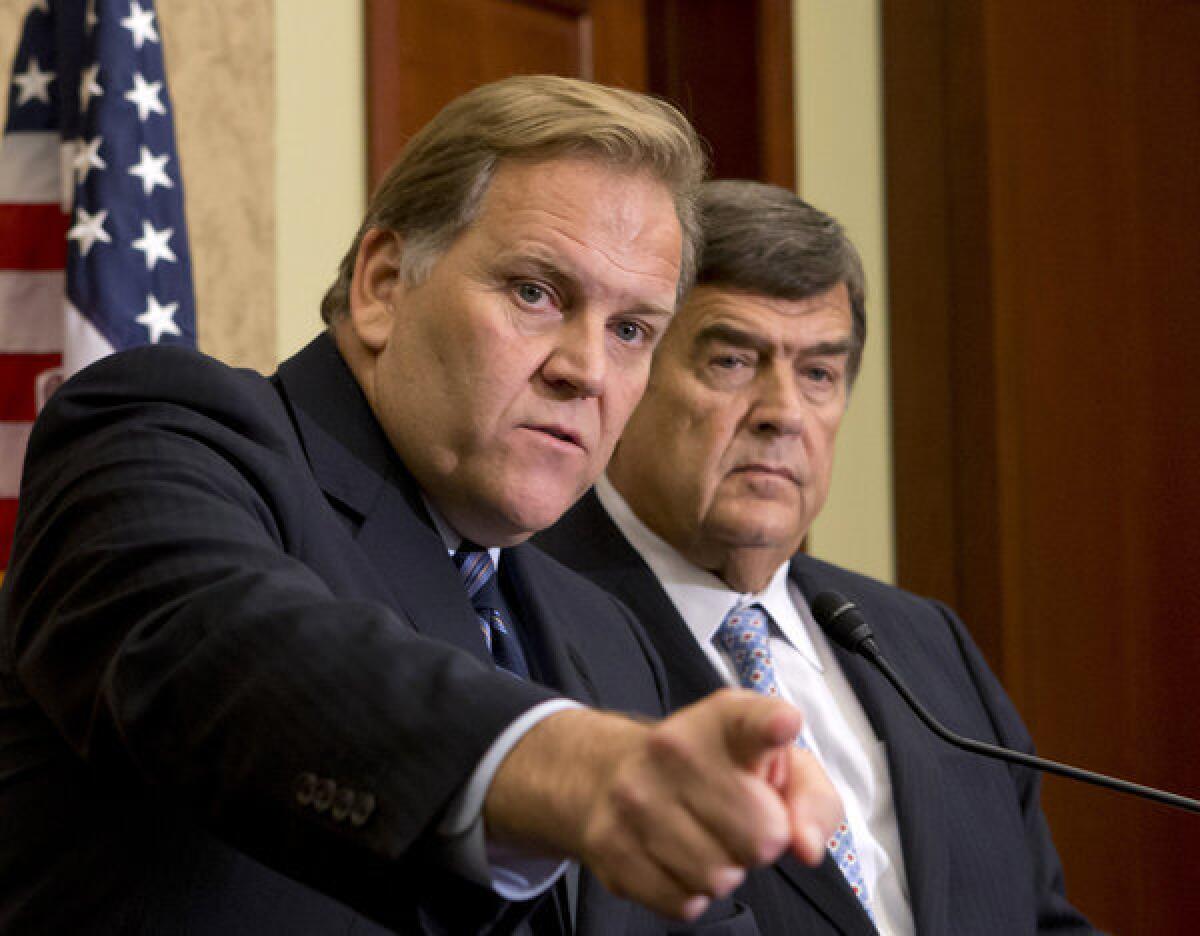CISPA passes House committee, angering privacy activists

The U.S. House Intelligence Committee overwhelmingly passed a cyber-security bill on Wednesday, angering privacy advocates who believe the bill fails to protect critical personal information.
The Cyber Intelligence Sharing and Protection Act of 2013, or CISPA, passed by a vote of 18 to 2, with only two Democrats voting against it. It now will move to the full U.S. House of Representatives for a vote that could be held as early as next week.
PHOTOS: The top smartphones of 2013
The House’s Permanent Select Committee on Intelligence met behind closed doors Wednesday to consider the legislation that was sponsored by its chair, Rep. Mike Rogers (R-Mich.), and the committee’s ranking Democrat, Rep. C.A. “Dutch” Ruppersberger (D-Md.).
In the wake of growing concerns over cyber attacks on U.S. businesses, the bill attempts to promote greater cooperation between companies as well as the U.S. government by making it easier to share information on such events. However, critics say the legislation goes too far by absolving companies of much of the legal liabilities that might come with sharing such data, while failing to properly ensure that any private data is stripped out.
Rep. Adam Schiff (D-Calif.) and Jan Schakowsky (D-Ill.) were the only two committee members to vote against the bill. Both offered amendments during the hearing designed to address some of the privacy issues that were rejected.
In an interview after the hearing, Schiff said he remains optimistic the problems can be fixed as the bill moves on to the full House.
“I think the legislation is worthwhile,” Schiff said. “And it shouldn’t be that hard to require the steps that would protect people’s privacy while also preventing the massive theft of America’s work product that’s going on.”
Last year, a similar bill passed the House, but was stymied when President Obama announced he would veto it. While proponents hope the bill has been changed just enough to win his support, Schiff said he believes the administration will still decline to support the latest bill.
Large tech companies such as Intel, Oracle and IBM have come out in favor of the bill. However, the American Civil Liberties Union, the Center for Democracy and Technology, and an association of smaller tech companies and grass-roots activists known as Fight for the Future, have already launched a digital campaign against the bill.
“For information sharing, there are better ways to do it,” said ACLU attorney Michelle Richardson.
Before the vote Wednesday, protesters gave a glimpse of what may be yet to come in their campaign to engage the public. Reddit co-founder Alexis Ohanian released a video and online petition calling for tech companies such as Facebook, Google and Twitter to oppose the bill.
ALSO:
Hackers who hit South Korea used an old tactic
U.S.-China business group criticizes cyber-security law
Member of LulzSec hacker group pleads guilty in 2011 cyber attacks
More to Read
Inside the business of entertainment
The Wide Shot brings you news, analysis and insights on everything from streaming wars to production — and what it all means for the future.
You may occasionally receive promotional content from the Los Angeles Times.











